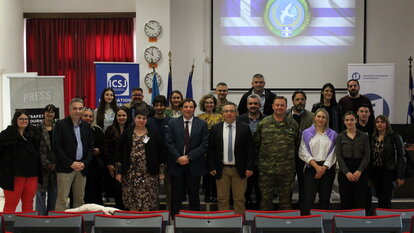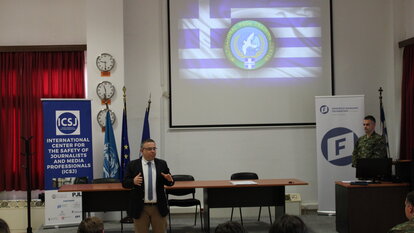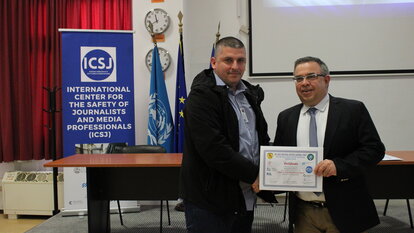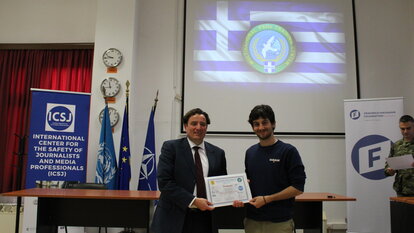EVENT
3rd Safety for Journalism Training School
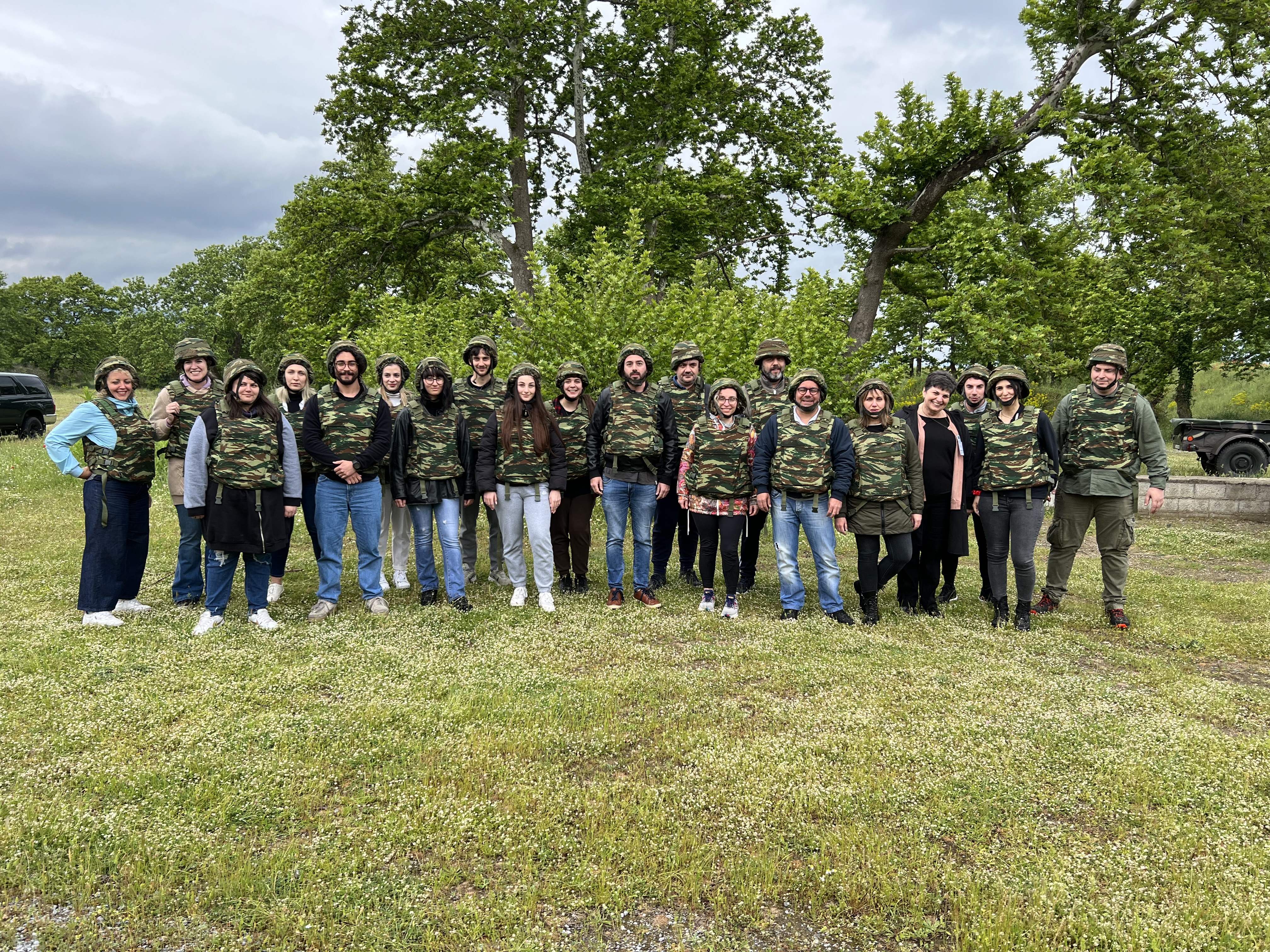
The 3rd training program "Safety for Journalists (SfJ) - Training School" tοοκ place from May 8 to 12, 2023 in Kilkis, by the International Training Center for the Safety of Journalists and Media Professionals (ICSJ), the Peace Journalism Laboratory of the Aristotle University of Thessaloniki (PJL), the Jean Monnet Chair for European Public Diplomacy, and the Multinational Training Center for Peace Support Operations (MPSOTC) and with the support of the Friedrich Naumann Foundation for Freedom Greece and Cyprus (FNF). The aim of the program was to provide theoretical and practical training to those interested in or called upon to cover news in war zones.
The training was carried out by experts and experienced professionals, while part of the field security will was provided by Hellenic Special Forces officers. The curriculum included two main parts, of theory and practical field training. Participants were trained in a range of topics including threat awareness, HEAT, the law of armed conflict, basic field and travel security, data security, field first aid, hygiene, and stress management, and while they were also briefed on concerning procedures and documents for going into the field.
SfJ is a training that is conducted under the framework of the United Nations Academic Impact, aiming to provide professionals, young journalists, and students from Greece and the whole world with all the necessary knowledge to face the challenges they are going to face in the modern field. The training was implemented in collaboration with the General Secretariat of Communication and Information, the Journalistic Union of Macedonia and Thrace Daily Press, the European Federation of Journalists, the Free Press Unlimited, the Digital Communication Network Global, and the Friedrich Naumann Foundation for Freedom Greece and Cyprus.
Once more, this year, for the planning of the program and its adjustment to address the latest contemporary challenges, respective research was conducted, with the support of the Friedrich Naumann Foundation for Freedom, in order to identify the needs and concerns of young people who would be interested in working as war correspondents, so that the result focuses and responds to the real needs of the participants.
On May 12th Professor Nikolaos Panagiotou welcomed the participants to the training, making a short introduction on the background of the program, and the importance of such training, and introduced the recently established “International Center for the Safety of Journalists and Media Professionals” (ICSJ). Following, the Commander of the Hellenic Multinational Peace Support Operations Training Center (MPSOTC) Colonel Gavranopoulos Thomas also welcomed the participants in the premises of the training center.
Moreover, Eleni Siapikoudi and Alona Tatarova, from FNF, introduced the foundation’s history and aims and highlighted its support for the program, closing the welcome session of the training.
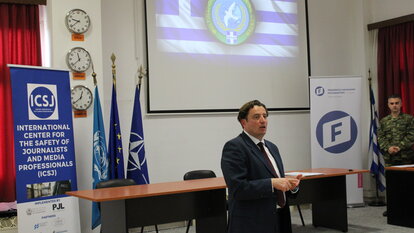
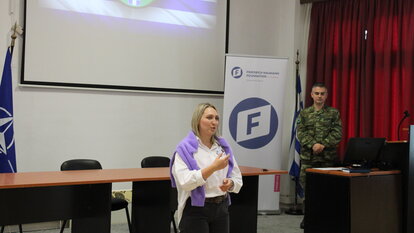
Professor Giorgos Terzis opened the training session, elaborating on issues of Global journalism ethics and conflict. The professor was followed by Professor Aphrodite Salas, who presented how to report in marginalized communities and the threats and challenges of such kind of reporting. For the last two hours of the first day, Mr. Adrien Collin, project officer at the European Federation of Journalists, introduced operational planning, preparation for the assignment as well as risk assessment and explained how international mechanisms/NGOs can support conflict reporters and how they can assist them in their work.
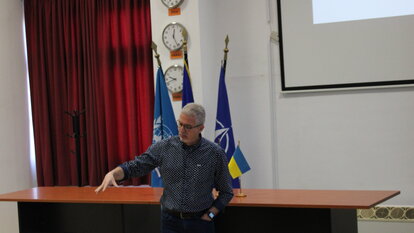
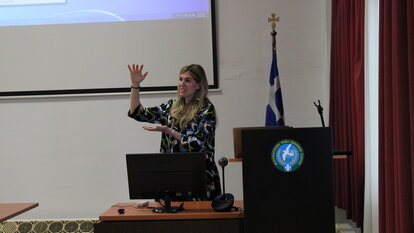
On the Second day, the participants traveled to Rentina, on the premises of the Unconventional Warfare Center, where they received field training from Hellenic Special Forces personnel. The “boots on” training was found very interesting by the participants, as they have been challenged to overcome some “uncomfortable” situations, that they might need to face in real life.
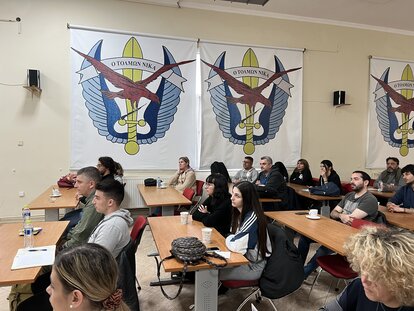
During the third day, Major Smilianis Christos introduced hostile environment awareness to the participants (HEAT), in order to provide them with some basic knowledge on the threats they may face on the field. Following, Assistant Professor Signe Ivask gave an insight on how to recognize negative stress and burnout, a very important element for war reporters, that tend to spend most of their daily routine under significantly stressful situations. After this, Mr. Tzortzis and Mr. Chalaris described how checkpoints and roadblocks work in a conflict area, and how should media working in these areas deal with them.
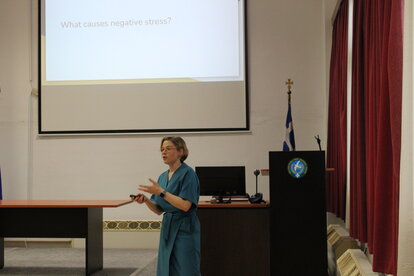
The fourth day opened with theoretical and practical training on self-medical care in the field, provided by the Meducation, represented by its training director, Alexandros Toumpelis. This was followed by a presentation of the case study of Syria, in terms of Journalists’ rights being at stake, by Professor Vatikiotis and PhD candidate Mrs. Simatou. After a short lunch break, Mrs. Lamprini Papadopoulou followed with the topic of crises and traumatic stories.
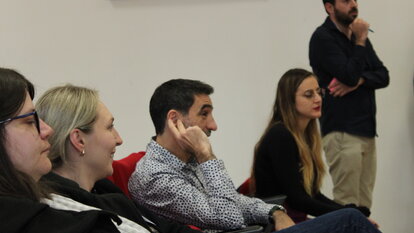
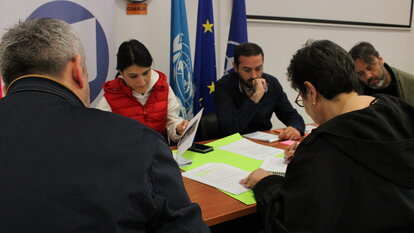
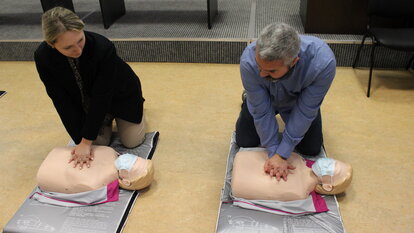
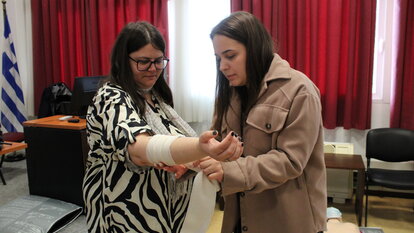
The fifth and last day of the training began by sharing mission experiences with journalist Stavros Ioannidis, from SKAI TV, that was been present as war reporter recently in Ukraine. Mr. Ioannidis, having already participated in this training, before even the initiation of the war in Ukraine, highlighted the importance of such training for any journalist or media professional that has in mind to cover war or crisis issues. Professor Andreas Veglis followed, with an introduction to valuable digital tools and their use to provide digital safety.
The training closed with the certification award to the participants, by the Secretary General of Media and Communication Dimitrios Galamatis. The Secretary-General addressed the participants and the organizers of the training, highlighting the importance of this initiative, expressing his support, and introduced the International Center for the Safety of Journalists and Media Professionals (ICSJ), which has been recently founded in Thessaloniki.
